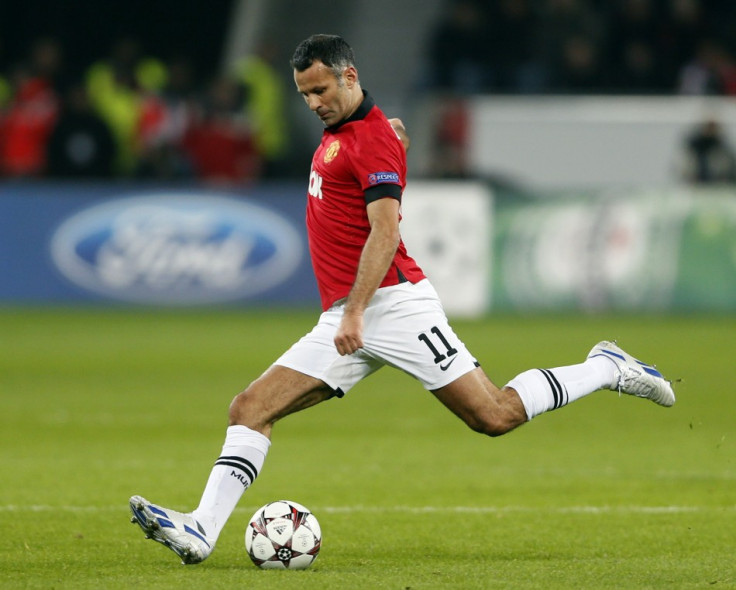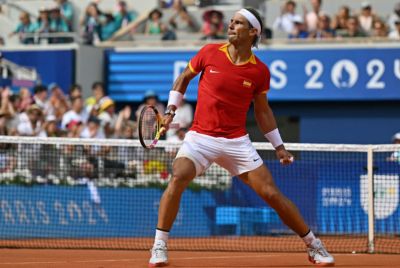Ryan Giggs Turns 40: British Football's Greatest Ever Player?

Such is the poignancy with which Ryan Giggs reaches milestones; he is quickly building a reputation for it.
His Manchester derby debut was marked with his first ever Manchester United goal. The evening in which he broke Sir Bobby Charlton's all-time appearance record came as United won their third European Cup. And the marking of his 40<sup>th birthday will forever be remembered for a virtuoso display against Bayer Leverkusen.
After 24 seasons and over 900 appearances for United, there is little that hasn't already been said about unquestionably the club's greatest ever player. The statues which grace Old Trafford of Sir Alex Ferguson, George Best, Dennis Law and Charlton will soon have some company.
The tributes from inside the walls at United will no doubt be as regular as they are overflowing with praise. If Ferguson has been the heart and soul of the club over the last quarter of the century, then Giggs has been his primary cohort. A product of the much-famed scouting and academy system, and so often an example of the class and entertainment which United produce.
While there remains no doubt over Giggs' profile at the Theatre of Dreams, questions remain regarding his reputation and legacy outside of where he is so admired. In short, where does British football's most decorated player rank among the world's football elite?
Without an appearance at a major tournament, devoid of recognition by Fifa in voting for the world player of the year and not least with his finest years coming at a time where British football was banished from Europe and the Premier League lived in the shadow of Serie A, the Giggs message has not been widely told.
In the same way that modern football's reach allows millions to access the brilliance of Lionel Messi and Cristiano Ronaldo; many missed Giggs' pomp.
One aspect of Giggs' career that does translate is his loyalty. In the same way Paolo Maldini, Iker Casillas and Steven Gerrard's one-club devotion is heralded, Giggs, who straddled two vastly alternative eras in modern-day football, is perceived as the standard-bearer. The debate over whether his personal development would have benefitted from moving abroad is overshadowed by his longevity.
But such factors mean Giggs' impact can't convincingly be portrayed as having world-wide appeal. The top table of Pele and Diego Maradonna can remain seated.
Perhaps the most adequate place to set Giggs' achievements against is in Britain, where he holds more league titles than any other individual and has more appearances than any outfield player in the Premier League era.
The pantheon of British football's greatest players might be extensive, but it remains exclusive. Kevin Keegan, Kenny Dalglish, John Charles, Bobby Moore, Sir Stanley Matthews, Paul Gascoigne, Best, Charlton are all among them, yet does Giggs deserve to sit among such esteemed company?
The numbers alone provide a compelling starting point. Three times recognised by the PFA as the player of the year, a scorer in all 21 Premier League seasons, the most appearances in Champions League history and perhaps the most awe-striking of all; no red cards in 952 club appearances.
With his international career hamstrung by playing for Wales, like Best, his ability alone must take a central role in assessing his achievements. In his teens and early 20s, Giggs was as feared a player as any in the English top flight, he combined grace with devastating cutting edge when the game was more free flowing, attacks more foolhardy.
Over the past decade, as the game has adopted European tendencies, control has become increasingly crucial. As much through physical demands, Giggs has moved with the times, moving central and using his footballing brain to deadly affect. His all-round performance and assist against Leverkusen was among the most defining performances of the ex-Wales international's adopted guise.
During Ferguson's final years in charge, as United took on the might of Barcelona in Europe and Manchester City domestically, the evidence of Giggs' success at adapting his game was in his retained influence at Old Trafford.
But the most convincing facet of the argument surrounding Giggs' status within British football lies in the reaction he provokes. His 40<sup>th birthday has been marked with eulogies from everyone from Arsene Wenger to David Beckham.
Football has never been about stats or analysis, Skypads, HD, 3D, offside, onside, ball-to-hand, mixers, false-nines or hipsters, it's about the indescribable; emotion, passion and desire. Giggs incites all three.
A new contract at United will likely see him become the oldest player to play in the Premier League and surpass 1000 club appearances. But for once, this isn't about milestones. We're better off remembering him for what he is, an individual who transcends his sport.
© Copyright IBTimes 2025. All rights reserved.





















